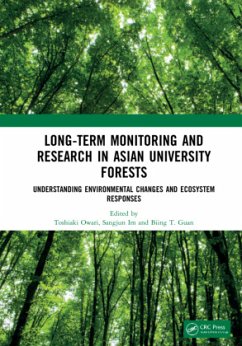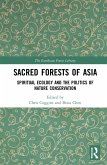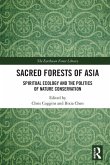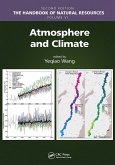This book disseminates various long-term data and research results from university forests in Asia towards realizing adaptive forest management and conservation based on a comprehensive understanding of environmental changes and ecological responses.
University forests - which refer to large, forested areas owned or controlled by universities and devoted primarily to research and teaching programs in forest-related sciences - have collected, managed and analyzed long-term meteorological, hydrological, biological and geographic data under an organizationally stable observation system. With the influence of global warming becoming apparent and extreme weather events occurring more frequently in the region, it is an important and urgent challenge to understand long-term environmental and ecosystem changes in forests and provide robust scientific knowledge on how ecosystems respond to those changes. This book is a step towards addressing the challenge.
The chapters in this book were originally published as a special issue of the Journal of Forest Research.
University forests - which refer to large, forested areas owned or controlled by universities and devoted primarily to research and teaching programs in forest-related sciences - have collected, managed and analyzed long-term meteorological, hydrological, biological and geographic data under an organizationally stable observation system. With the influence of global warming becoming apparent and extreme weather events occurring more frequently in the region, it is an important and urgent challenge to understand long-term environmental and ecosystem changes in forests and provide robust scientific knowledge on how ecosystems respond to those changes. This book is a step towards addressing the challenge.
The chapters in this book were originally published as a special issue of the Journal of Forest Research.








